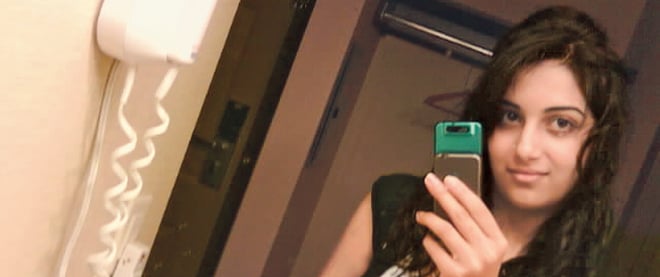The three who lived
What we know of the three children not dead or on trial offers a chilling glimpse into the Shafia household
Crown Exhibit
Share

Mohammad Shafia and Tooba Yahya were blessed with seven healthy children. Three are now dead, allegedly drowned by mom and dad. One is in shackles, his parents’ accused accomplice. And the other three—alive, but not necessarily well—are at an undisclosed location, removed from the family home for their own safety.
For weeks now, a jury in Kingston, Ont., has listened to the heartbreaking story of three Afghan daughters who immigrated to Canada, but were never allowed to be Canadian. Mother, father and brother dumped them in the Rideau Canal, prosecutors say, because they weren’t behaving like good Muslim girls should. Two even had boyfriends. “Whores,” as dad called them, oblivious to the police wiretap recording his rant.
Those same wiretaps, like so much of the evidence in this twisted case, also include the voices of the other three Shafia children—the ones who weren’t at water’s edge that night, either as victims or alleged perpetrators. But because of a sweeping publication ban, nothing about their identities (name, age or gender) can be repeated outside the courtroom. It’s as if they, too, no longer exist.
Yet their recorded words, and the testimony of others who knew them, offer a chilling glimpse inside the Shafia house, where lying, snitching and sibling rivalry were all encouraged evils in a far more sacred pursuit: upholding the family’s “honour,” which literally lived or died on the perceived conduct of its females.
Jurors have been told that two of the surviving children (we’ll call them “A” and “B”) were spying on the others at school, reporting back to mom, dad and brother Hamed. At one point, “B” actually switched sides and complained to police about problems at home, only to recant the story. Later, when investigators raided the house in Montreal, that same child told their mother over the phone: “You should get a lawyer and keep saying: ‘No, we didn’t do it.’ ”
And it was the third child—“C”—who triggered most of mom’s tears during her interrogation. “I am worried about all of them,” Yahya sobbed. “But [“C”] is so attached to me.”
An Afghan businessman who made his millions in Dubai, Shafia moved his clan to Montreal in 2007. Their house on Bonnivet Street included his first wife, the infertile Rona Amir Mohammad. By the fall of 2008, four of the kids were attending the same high school: Sahar, Geeti, “A” and “B.” (Zainab, the eldest sister, was under virtual house arrest after being caught with a boyfriend, while Hamed, who discovered said boyfriend, was enrolled elsewhere.)
Some days, Sahar came to class in tears; once, a teacher noticed bruises and scratches on her arm. The 17-year-old confided that her dad and brother were abusive, and that “B”—an “exemplary student,” as one teacher testified—acted as the parents’ eyes and ears. One day, Sahar’s mother went so far as to confront a teacher, demanding to know if her daughter “had kissed a boy.” (“B” acted as mom’s translator, from French to Farsi.)
Sahar, in fact, did have a boyfriend, and was terrified that “A,” who also saw them together, would tell their father. She wanted to get a job and find her own apartment—and rescue her little sister, Geeti, in the process. At just 13, Geeti was the most rebellious, skipping class, flunking courses, and telling everyone she wanted to be placed in foster care.
Geeti said the same thing on April 17, 2009, when two police officers came to the house. That morning, Zainab had run away with her boyfriend, and the constables were responding to Hamed’s frantic “missing persons” report. Geeti said her father had threatened to kill them; Sahar said her brother slapped her. Both said they wanted out.
While talking to “B,” one of the officers “observed a mark near [the] right eye.” The child provided a statement, and although the contents have not been disclosed in court, this much is clear: as soon as Shafia walked through the door, “B” took everything back, insisting it “was not true.”
Less than three months later, Zainab, Sahar and Geeti would be found at the bottom of the Kingston Mills locks, floating in a sunken sedan with their “stepmother” Rona. The family had been driving home from a Niagara Falls vacation, and according to prosecutors, “A,” “B” and “C” were at a nearby motel during the midnight execution.
Social workers seized the survivors on July 21, 2009, the day before their parents and brother were handcuffed. Hours before the arrests, investigators were eavesdropping when the kids called Hamed’s cellphone.
“You are 100 per cent caught,” said “A.”
“They are making up stuff,” Hamed answered. “Don’t say this stuff on the phone.”
When Yahya came on the line, she told “C” not to cry, urged “B” to “eat your food properly,” and asked “A” what the police told the kids. “Are they saying that they have 100 per cent proof or just suspicion?”
“The man told me that: ‘I believe that those three did it,’ ” “A” answered.
“Let them say what they want to say, my child,” Yahya said. “As long as you are happy and you don’t worry about anything.”
In the coming weeks, defence lawyers will call their first witness. It’s not known whether any of the surviving children will take the stand. But if they do, for those sitting in the prisoner’s box, it could be the closest they’ll get to a family reunion.